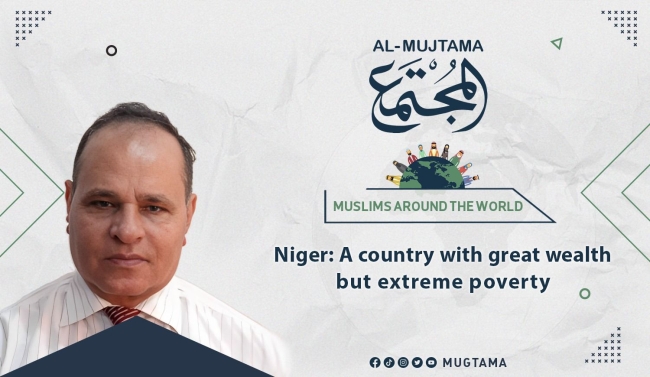Niger: A country with great wealth but extreme poverty Featured
When there is a coup or a security crisis, it is hard for people outside to understand what's really going on. But sometimes, talking to an expert can give us a clearer picture. Therefore, based on an interview with the journalist, Yusef Siri B. who runs the Echoes of Niger website, we will discuss the situation in Niger. We will share insights about the military coup in Niger, the people's reaction, and the threats from ECOWAS and France. It is a story about a country with great wealth but extreme poverty.
Relative Calm and Violent Demonstrations
He says that since the military coup against President Mohamed Bazoum, the country has been relatively calm. People are going about their lives as usual, except for the demonstrations in the capital, Niamey. These protests started as support for the military council but turned violent, with the French embassy as a target.
The Impact of Sanctions
People in Niger are starting to worry about the future because of the sanctions imposed by several countries, especially ECOWAS. Prices have already started to rise, like the cost of a 25-kilogram bag of rice, which increased from 11,000 francs to 15,000 francs in just a few days. This worries the residents even more.
Some merchants are taking advantage of the situation to raise prices even before the sanctions take effect. This is something that happens during occasions like Ramadan too, without any economic or political reasons.
The Political Class and the Military
According to Seri B, there haven't been any significant changes in the political class, except for a statement from opposition parties supporting the military council. The ruling party is trying to use international rejection of the coup to its advantage, but most citizens support the army's actions, which weakens the party's influence.
During the previous period, there were restrictions on freedoms, and this led to acts of violence after the coup, especially against the French embassy. Many foreigners, including 800 French citizens, had to be evacuated.
Why is ECOWAS Threatening Military Intervention?
When a military coup happens, it's expected that there will be international condemnation. However, the tone regarding Niger has been particularly harsh compared to other countries. Seri B believes this is because Niger was seen as the last stronghold of civilian rule in the Sahel region, and its stability was crucial. The West African Group fears that military coups could spread to other countries led by civilian rulers.
ECOWAS countries had previously announced the creation of a unified force to deal with military coups. The situation in Niger was an opportunity to test this option, but neighboring countries like Mali, Burkina Faso, and Algeria rejected the idea. This has made the group think twice about military intervention, unless they are willing to accept civilian casualties and more chaos.
The Growing Anti-France Sentiment in Niger
There are people who believe that the wave of anti-France sentiment in Niger is increasing, just like in other neighboring countries. They argue that this sentiment existed even before the coup, but it became more visible after the overthrow of President Muhammad Bazoum. The French embassy was specifically targeted, despite the presence of other embassies in the region. The ruling military council also supported this sentiment by urging foreign forces not to interfere in Niger's internal affairs.
The Issue of Enriched Uranium
There are claims that Niger's wealth has been mismanaged or looted, leading to the country's poverty. A journalist who has won international awards for investigative journalism supports this claim. According to him, Niger is one of the richest countries in the world when it comes to uranium. However, it is strange that despite 50 years of uranium exploitation, the lives of the population have not significantly improved.
Power Outages and Mismanagement
The journalist points out the irony that the capital city, Niamey, is currently experiencing power outages. Some speculate that Nigeria has cut off energy supplies as part of sanctions. However, power outages have been a persistent issue even before this crisis, despite uranium being the main source of energy production. The journalist believes that mismanagement, corruption, and misappropriation of public funds are to blame for this situation. He found evidence of chaos in the sector during his previous investigations, and it is clear that these resources are not being used to finance education, healthcare, the economy, or the country's development.
The Beneficiaries of the Situation
In conclusion, the journalist argues that certain groups and companies, along with France, are the primary beneficiaries of Niger's situation. They manipulate the country's wealth by buying uranium at low prices and selling it at much higher prices in the international market. France also benefits from Niger's uranium in its nuclear facilities. In summary, there is a growing anti-France sentiment in Niger, and there are concerns about the mismanagement of the country's uranium wealth. The journalist's investigations have shed light on the chaos and corruption in the sector, which has hindered the development of Niger and its people.


